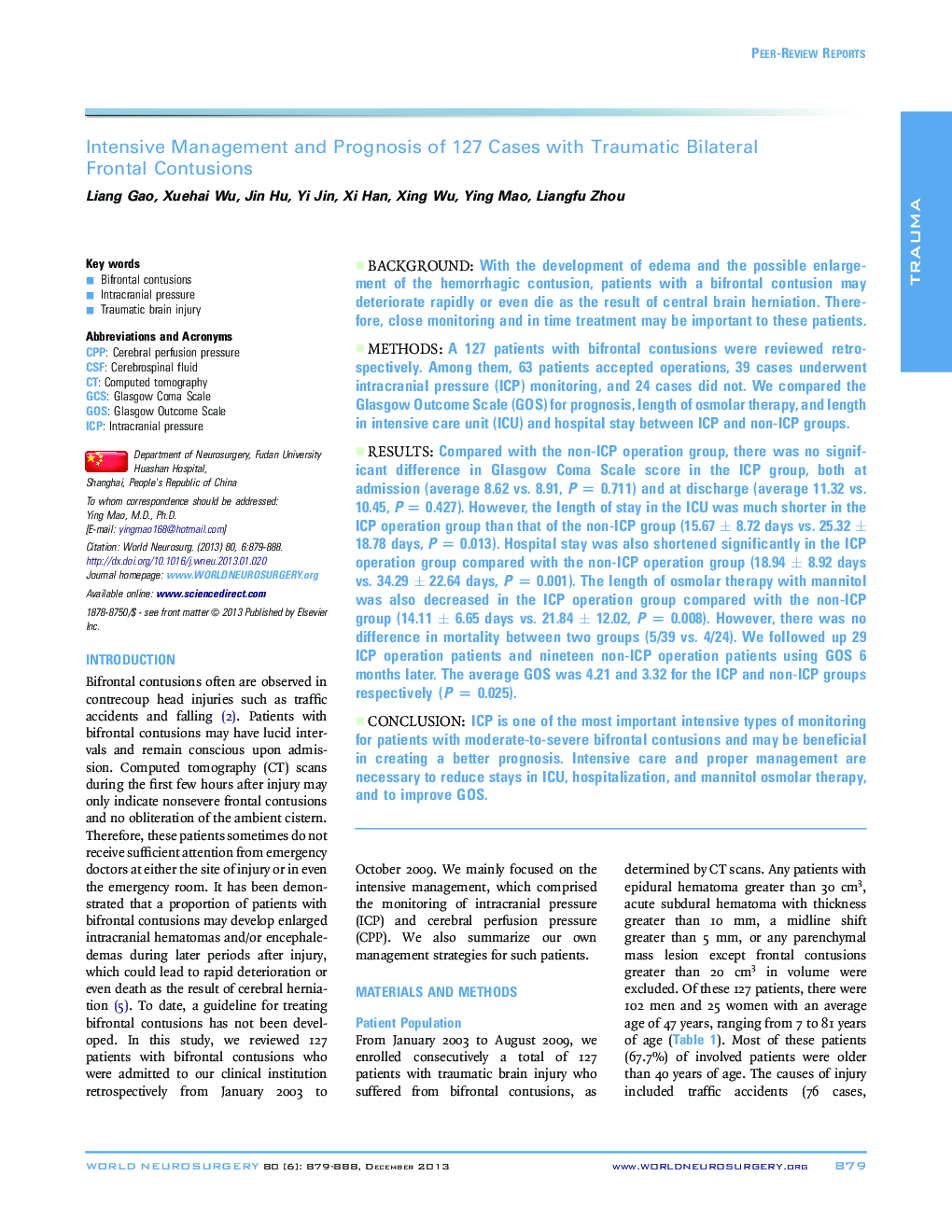| کد مقاله | کد نشریه | سال انتشار | مقاله انگلیسی | نسخه تمام متن |
|---|---|---|---|---|
| 3095809 | 1581475 | 2013 | 10 صفحه PDF | دانلود رایگان |

BackgroundWith the development of edema and the possible enlargement of the hemorrhagic contusion, patients with a bifrontal contusion may deteriorate rapidly or even die as the result of central brain herniation. Therefore, close monitoring and in time treatment may be important to these patients.MethodsA 127 patients with bifrontal contusions were reviewed retrospectively. Among them, 63 patients accepted operations, 39 cases underwent intracranial pressure (ICP) monitoring, and 24 cases did not. We compared the Glasgow Outcome Scale (GOS) for prognosis, length of osmolar therapy, and length in intensive care unit (ICU) and hospital stay between ICP and non-ICP groups.ResultsCompared with the non-ICP operation group, there was no significant difference in Glasgow Coma Scale score in the ICP group, both at admission (average 8.62 vs. 8.91, P = 0.711) and at discharge (average 11.32 vs. 10.45, P = 0.427). However, the length of stay in the ICU was much shorter in the ICP operation group than that of the non-ICP group (15.67 ± 8.72 days vs. 25.32 ± 18.78 days, P = 0.013). Hospital stay was also shortened significantly in the ICP operation group compared with the non-ICP operation group (18.94 ± 8.92 days vs. 34.29 ± 22.64 days, P = 0.001). The length of osmolar therapy with mannitol was also decreased in the ICP operation group compared with the non-ICP group (14.11 ± 6.65 days vs. 21.84 ± 12.02, P = 0.008). However, there was no difference in mortality between two groups (5/39 vs. 4/24). We followed up 29 ICP operation patients and nineteen non-ICP operation patients using GOS 6 months later. The average GOS was 4.21 and 3.32 for the ICP and non-ICP groups respectively (P = 0.025).ConclusionICP is one of the most important intensive types of monitoring for patients with moderate-to-severe bifrontal contusions and may be beneficial in creating a better prognosis. Intensive care and proper management are necessary to reduce stays in ICU, hospitalization, and mannitol osmolar therapy, and to improve GOS.
Journal: World Neurosurgery - Volume 80, Issue 6, December 2013, Pages 879–888